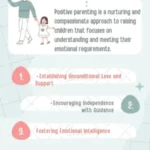Parenting is a journey like no other, where we witness the remarkable growth and transformation of our children right before our eyes. It feels as if it were just yesterday that they were helpless infants learning to crawl, walk, and feed themselves. Now, they are embarking on their educational journey, actively participating in various activities, forming friendships, and gradually becoming more self-reliant individuals.
The Art of Letting Go
Seasoned parents have often shared the wisdom that from the moment a child is born, we begin an ongoing process of learning to let go. This entails a continuous evolution of our parenting strategies to accommodate the changing needs of our growing children. Just as our children grow, develop, learn, and mature, so must our role as parents.
Embracing Individuality
As your child progresses on their unique path of growth, you will inevitably discover the intricacies of their personality and temperament. You may find yourself subconsciously recalibrating your parenting techniques to align with your child’s distinct requirements. It’s crucial to recognize that no two children are identical, and consequently, no single parenting style can fit all.
Balancing Guidance and Independence
Some children may exhibit a greater need for guidance and support, experiencing uncertainty in their endeavors. For these children, parents often step into roles as mentors, leaders, and motivators. The objective is to guide them through childhood while fostering their independence, boosting self-esteem, and offering consistent praise.
Conversely, other children may display intrinsic motivation and a strong will, requiring less direct leadership. While encouraging their independence remains essential, it is equally important to nurture their ability to seek assistance when necessary and consistently acknowledge their positive actions and qualities.
The Tools of Observation and Communication
In your parenting journey, your most valuable tools are keen observation and effective communication. You must observe your child’s evolving needs with a discerning eye and listen attentively to their expressions, whether spoken or unspoken. Striking the right balance is the key—encourage your child to embrace their individuality while ensuring that you are readily available to provide support at the level they require.
The level of involvement may fluctuate based on the situation. While your child may not necessitate direct academic oversight, they may rely on your guidance to navigate the complexities of their social life. In these moments, when making new friends or facing unfamiliar social situations, your presence becomes invaluable.
The Bottom Line
In conclusion, parenting is an ever-evolving journey that demands adaptability. Just as your child undergoes changes and growth, so should your parenting skills. Maintain a watchful eye and attentive ear, and foster honest and open communication with your child. This dynamic approach will enable both you and your child to gracefully navigate the various stages of growth and development. Remember, parenting is not a one-size-fits-all endeavor. It is a beautiful, intricate dance of love, attention, and flexibility that nurtures a confident, happy child prepared to thrive in a world of endless possibilities.





